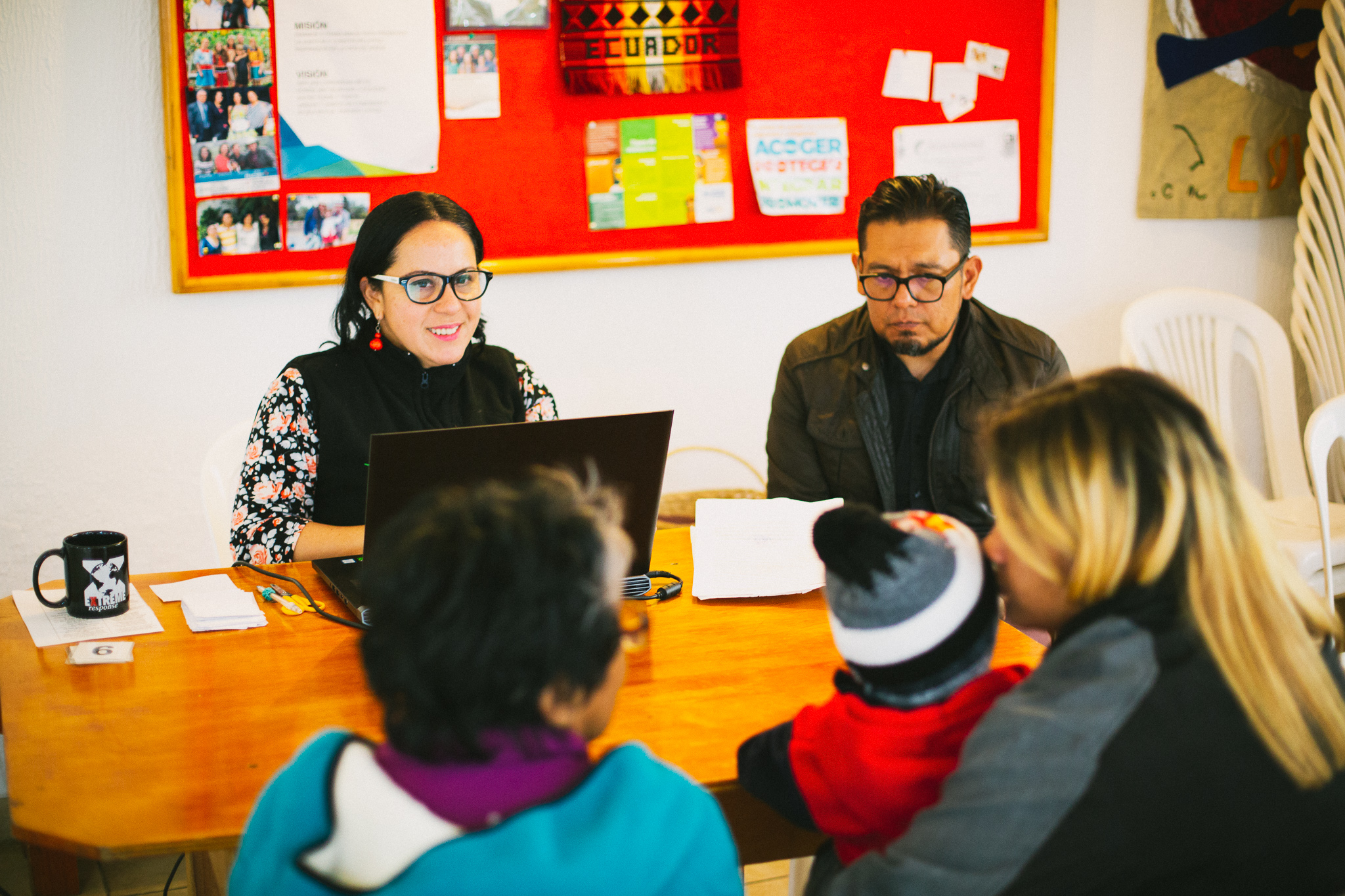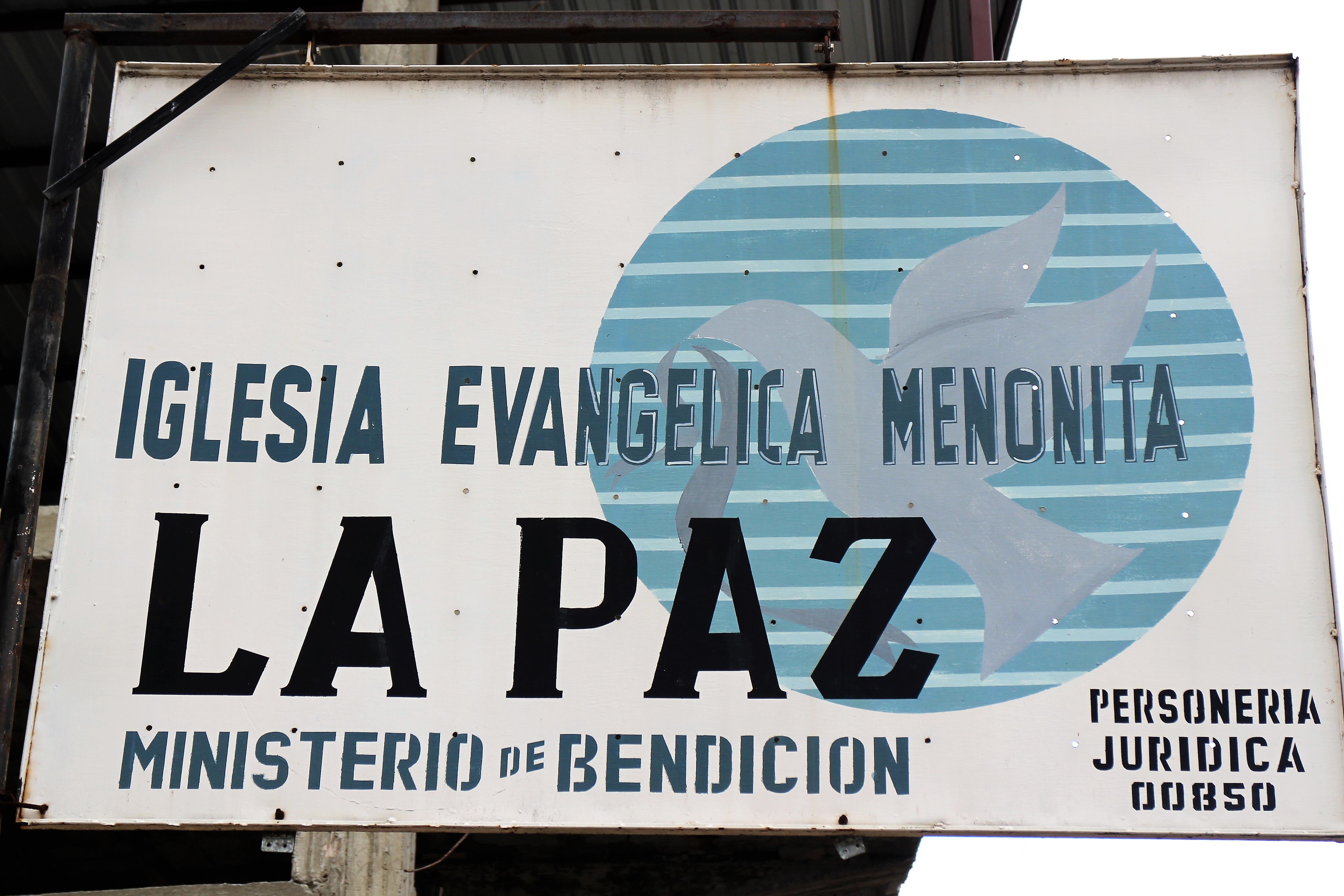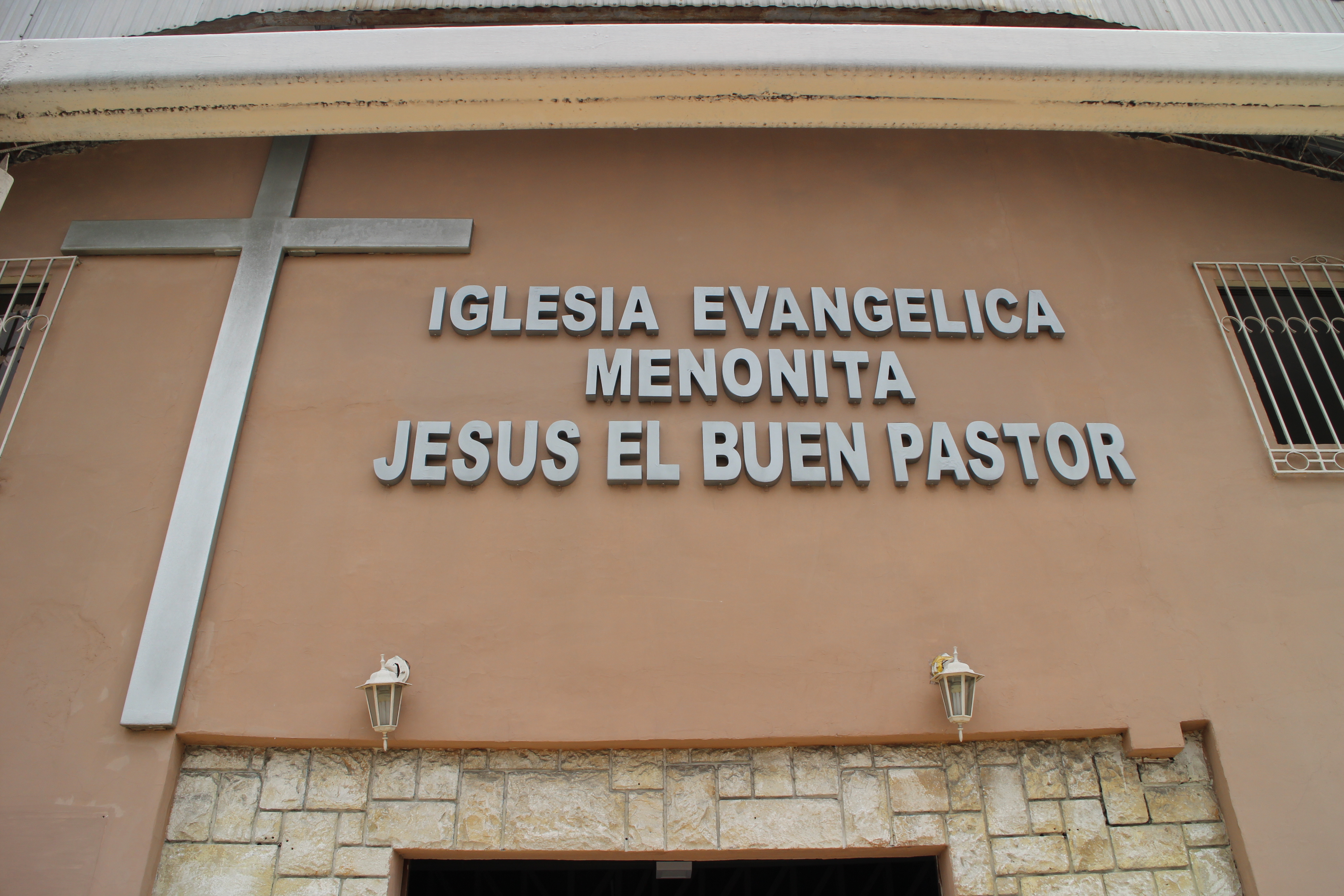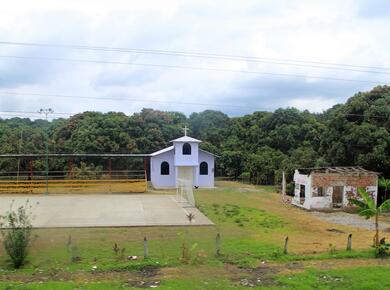Posted: March 16, 2023
Ecuador
Today, there are three national Mennonite churches in Ecuador, one of which is a member church of Mennonite World Conference. They form a small but interconnected group of churches living out Anabaptist faith in a largely Catholic country.
Passion for sharing the good news
In the 1980s, CMC, also known as Rosedale (then called Conservative Mennonite Church), sent workers to share the gospel in Ecuador.
It began in Ecuador’s second largest city, Guayaquil. As Elam and Doris Stauffer invited neighbours into their home, relationships developed and a Sunday service started. The first Iglesia Evangélica Menonita Ecuatoriana (IEME) congregation was established in Guayaquil around 1983. This congregation called Jesús el Buen Pastor (Jesus, the Good Shepherd) is a significant evangelical presence in the country.
Around the same time, a landslide that washed away several communities near the coastal city Manta brought Canadian and American Mennonites to offer disaster assistance. Robert and Mirella Miller oversaw reconstruction of some 150-200 homes for relocated families. This example of “good Anabaptists helping neighbours” made a significant impression on local people. New churches formed in Manta, Guayaquil and Portoviejo.
Fruit of an evangelist
“Our church is the fruit of Henry Klassen,” says Manuel Aguagallo of Iglesia Cristiana Menonita de Ecuador (ICME). Henry Klassen of Gospel Missionary Union (now called Avant), ministered among Quechua (indigenous peoples) in RioBamba and Guayaquil in the 1990s. Walking, driving or even riding on horseback, he went from community to community, preaching and mentoring. He was known to carry a film projector to show evangelistic movies.
Today, Monte Horeb (Mount Horeb) and El Pilar de la Verdad (pillar of truth) in Riobamba, Estrella del Sol (star of the sun) in Guayaquil and Camino de Salvación (way of salvation) in Quito form a small association. From 2010-2017 was a period of consolidation and continued relating with Mennonite partners. In 2017, they adopted a Mennonite confession of faith. A period of growth followed.
A church of refuge
In the 1980s, Federation of Indigenous Evangelical Churches of Ecuador-FEINE began to look for theological training for their pastors. As a result, what is now Mennonite Mission Network sent workers to form relationships and support theological training. First, Mauricio and Sara Chenlo, ABMS-trained Argentinians, and later Colombian Mennonites Cesar Moya and Patricia Ureña fostered Anabaptist teaching. What is now Iglesia Cristiana Anabautista Menonita de Ecuador (ICAME) began as home bible studies in Quito, Ecuador’s capital city.
With their eyes and hearts open to their neighbourhood, the church members helping people seeking refuge after migrating from other countries. Outreach to children is a big part of the church’s work. The church has a radical leadership style with a pastoral team comprised of four women.
“To demonstrate our beliefs, we live out those beliefs in Christ daily,” say Vietnamese Mennonite pastors. “Christian faith is a ‘lived-out’ faith, not just a system of beliefs.”
Relating to other Anabaptist bodies

Connections to the wider Anabaptist family are tangible through material aid from Mennonite Central Committee, financial aid and mission workers from Mennonite Mission Network and Central Plains Mennonite Conference, and mentorship from IMCOL in Colombia.
During the pandemic, “We were able to share what we received from MCC (canned turkey, quilts, school kits),” says Doris Espinoza (ICAME).
ICAME leaders reached out to ask other churches about their needs were and gave generously from the aid they had received. “That’s one way we were able to come together to share and to be a community as an example of the kingdom of God on earth,” says Doris Espinoza.
ICME prepared small kits to share with people who have gone through hard times. The church distributed 700 kits for people who didn’t have a pound of rice or potatoes.
In May 2022, the three Anabaptist church groups held a retreat.
“It was an opportunity to know there are many more Mennonites in our country,” says Fabian Buenaventura (IEME).
“We know there are differences,” says Doris Espinoza, but focusing on what they have in common allows the three churches to learn from each other. In so doing, they are better equipped to bring the message of the kingdom of God to others.
They look forward to future opportunities to build bonds between AnabaptistMennonite brothers and sisters.
“That has been a great blessing,” says Fabian Buenaventura.
Living out Anabaptist identity
In a Catholic country, the Mennonites are different because baptism comes after declaration of belief in Jesus.
As followers of Jesus, the Mennonites are “not just someone who goes to church to worship. We are obedient to the Word of the Lord,” says Vilma Cuji (ICME).
“We follow Jesus in our practice, not as a written declaration but as a way of life,” says Fabian Buenaventura (IEME). “This identifies us in our communities. We need to incarnate the mission. If we don’t live it out we’re just one more denomination.”
“We are peacemakers,” says Vilma Cuji. “We believe it is better to resolve problems. Our belief in Jesus takes precedence over our external identities.”
The Mennonite churches have worked to respond in a holistic way. Not only with the words of the gospel, but also through soup kitchens and child care centres, schools, and a foundation for girls who have been raised on the street. “We reflect Jesus in our lives, in our actions. We are the hands and feet of Jesus for a world that needs urgently to hear a message of hope,” says Ángel Castro León (IEME).
One way ICME lived out peace convictions was by giving refreshments and sharing meals during a national strike to those who were arriving in Quito from provinces.
Anabaptism touches on structures and helps to transform society to be more empathetic, less unequal.
“We are a peace church but it is impossible to speak of peace when there is no justice; when there is violence, poverty, inequality. Jesus taught a kingdom where all humans could have a more full life,” says Alexandra Meneses Andrade (ICAME).
“We are focussed on being in the community, not being a closed church,” says Doris Espinoza (ICAME).
The churches live out the gospel as a holistic message: not just about saving the soul but the well being of the whole person.
“One can’t speak about following Jesus if we’re up in the clouds, if we’re not inserted in the reality of society,” says Doris Espinoza.
Challenges and opportunities
The church leaders lament that Ecuadorian society has become violent and corrupt. Many people feel hopeless.
Having a peace identity may led the church to be silent, to tend to its own spaces. But the church’s challenge is to be present in society, to speak to violence with a message of reconciliation and unity among the churches, says Alexandra Meneses Andrade (ICAME).
“Let’s put all we have learned at the service of society so that we can make a contribution to holistic peace in Ecuador,” she says.
“Everywhere there is a church, we can announce that Jesus Christ is Lord – not as a religion, but as a God of hope, a God who transforms lives, a God who gives new opportunities, a God who tells us that nothing is impossible for God,” says Fabian Buenaventura (IEME).

|

|
Article contributors: Ángel Castro León, pastor of Dios Viviente (Living God church) in Guayaquil; Fabian Buenaventura Garcia, president of Iglesia Evangelica Menonita Ecuatoriana (IEME); Manuel Aguagallo, pastor and representative of Iglesia Cristiana Menonita de Ecuador (ICME); Vilma Cuji, from Caminos de Salvación (ICME); Doris Espinoza, legal representative of Iglesia Cristiana Anabautista Menonita de Ecuador (ICAME); Alexandra Meneses Andrade is the general secretary of Iglesia Cristiana Anabautista Menonita de Ecuador (ICAME).



Join the Conversation on Social Media
FacebookTwitterInstagramFlickrYouTube